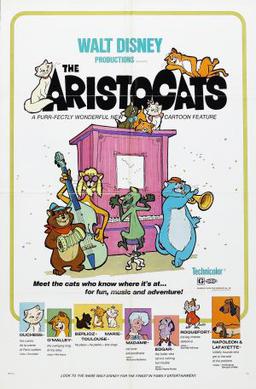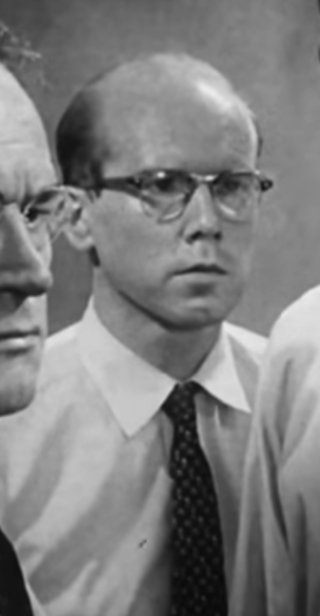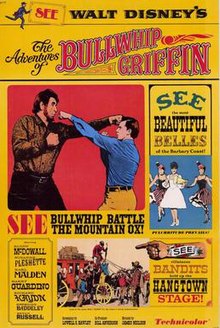
Roderick Andrew Anthony Jude McDowall was a British-American actor, whose career spanned over 270 screen and stage roles across over 60 years. Born in London, he began his acting career as a child in his native England, before moving to the United States at the outbreak of World War II. He achieved prominence for his starring roles in How Green Was My Valley (1941), My Friend Flicka (1943), and Lassie Come Home (1943). Unlike many of his contemporaries, McDowall managed to transition his child stardom into adulthood, and began to appear on Broadway as well in films, winning a Tony Award for his performance in Jean Anouilh's The Fighting Cock. For portraying Octavian in the historical epic Cleopatra (1963), he was nominated for a Golden Globe Award.
The year 1967 in film involved some significant events. It is widely considered one of the most ground-breaking years in American cinema, with "revolutionary" films highlighting the shift towards forward thinking European standards at the time, including: Bonnie and Clyde, The Graduate, Guess Who's Coming to Dinner, Cool Hand Luke, The Dirty Dozen, In Cold Blood, In the Heat of the Night, The Jungle Book and You Only Live Twice.

The Aristocats is a 1970 American animated romantic musical comedy film produced by Walt Disney Productions and directed by Wolfgang Reitherman. It is the final Disney animated film made with the involvement of Walt Disney Productions's co-founder Roy O. Disney before his death on December 20, 1971. The film is based on a story by Tom McGowan and Tom Rowe, and revolves around a family of aristocratic cats, and how an alley cat acquaintance helps them after a butler has kidnapped them to gain his mistress's fortune which was intended to go to them. The film features the voices of Phil Harris, Eva Gabor, Hermione Baddeley, Dean Clark, Sterling Holloway, Scatman Crothers, and Roddy Maude-Roxby.

Tales of the Gold Monkey is an American adventure drama television series broadcast in prime time on Wednesday nights by ABC from September 22, 1982, until June 1, 1983. Debuting the year following the release of Raiders of the Lost Ark, the series featured the romance of early aviation, exotic locales, and cliff-hanging action. Creator Don Bellisario said it was based on the film, Only Angels Have Wings.

Here's Boomer is an American adventure/drama television series produced by Paramount Television that premiered on the NBC network on March 14, 1980. A television film called A Christmas for Boomer aired on December 6, 1979, and served as the pilot. A spin-off of the live-action series The Red Hand Gang, the show follows the adventures of the titular stray dog, "Boomer" and ran for two seasons, ending its run on August 14, 1982, with the final original episode, "Flatfoots," airing on July 3 of that year.

Hermione Ferdinanda Gingold was an English actress known for her sharp-tongued, eccentric character. Her signature drawling, deep voice was a result of nodules on her vocal cords she developed in the 1920s and early 1930s.

Hermione Youlanda Ruby Clinton-Baddeley was an English actress of theatre, film and television. She typically played brash, vulgar characters, often referred to as "brassy" or "blowsy". She found her milieu in revue, in which she played from the 1930s to the 1950s, co-starring several times with the English actress Hermione Gingold.

Albert Sidney Fleischman was an American author of children's books, screenplays, novels for adults, and nonfiction books about stage magic. His works for children are known for their humor, imagery, zesty plotting, and exploration of the byways of American history. He won the Newbery Medal in 1987 for The Whipping Boy and the Boston Globe–Horn Book Award in 1979 for Humbug Mountain. For his career contribution as a children's writer he was U.S. nominee for the biennial, international Hans Christian Andersen Award in 1994. In 2003, the Society of Children's Book Writers and Illustrators inaugurated the Sid Fleischman Humor Award in his honor, and made him the first recipient. The Award annually recognizes a writer of humorous fiction for children or young adults. He told his own tale in The Abracadabra Kid: A Writer's Life (1996).

The Cat from Outer Space is a 1978 American science fiction comedy film directed by Norman Tokar starring Ken Berry, Sandy Duncan, Harry Morgan, Ronnie Schell, Roddy McDowall and McLean Stevenson.

Alan Carney was an American actor and comedian.

John Donald Fiedler was an American actor. His career lasted more than 55 years in stage, film, television and radio. Fiedler's high, flutey voice was instantly recognizable. He was typecast beginning early in his career for delicate, quiet, nerdy characters, although he also played sneaky villains. His roles included the meek Juror #2 in 12 Angry Men (1957); the benign-seeming gentleman who tries to prevent the Younger family from moving into a whites-only neighbourhood in A Raisin in the Sun (1961); the voice of Piglet in Disney's Winnie the Pooh productions; Vinnie, one of Oscar's poker cronies in the film The Odd Couple (1968); and Emil Peterson, the hen-pecked milquetoast husband on The Bob Newhart Show.

Parley Edward Baer was an American actor in radio and later in television and film. Despite dozens of appearances in television series and theatrical films, he remains best known as the original "Chester" in the radio version of Gunsmoke, and as the Mayor of Mayberry in The Andy Griffith Show.
Scrooge McDuck and Money is an American animated short film produced by Walt Disney Productions, directed by Hamilton Luske, and featuring the characters Scrooge McDuck and Huey, Dewey, and Louie. The short was released on March 23, 1967.

Arthur Malet was an English stage, film and television actor based in the United States. He was known for his films Mary Poppins, Halloween,The Secret of NIMH, and Hook. His last film was The Secret of NIMH 2: Timmy to the Rescue in which he did the voice for Mr. Ages.

By The Great Horn Spoon is a children's novel by Sid Fleischman, published in 1963. It tells the story of a 12-year-old boy and his English butler and their adventures in the California Gold Rush. It was adapted into the Disney film The Adventures of Bullwhip Griffin, starring Roddy McDowall and Suzanne Pleshette. Because of its setting, the novel is recommended by the California Department of Education as a literary selection for classroom use.

Hello Down There is a 1969 American comedy-adventure film starring Tony Randall and Janet Leigh that was released by Paramount Pictures. It was produced by George Sherman and Ivan Tors and directed by Jack Arnold and Ricou Browning. The screenplay was written by John McGreevey and Frank Telford.

Suspicion is the title of an American television mystery drama series which aired on the NBC from 1957 through 1958. The executive producer of half of the filmed episodes (10) of Suspicion was film director Alfred Hitchcock.

James William Neilson was an American television director, known for his stage and film direction as well as his work with Walt Disney's Wonderful World of Color.

Vacation Playhouse is an American anthology television series that was broadcast during the summer months on CBS from July 22, 1963, to August 21, 1967.
Events in 1954 in animation.

















